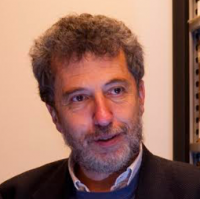Opening the archives
Our country confronts itself with history in a somehow reticent way, especially when history does not follow a reassuring mainstream of widely-shared and lesser-problematic narration. The overwhelming effort met when discussing the idea of a museum on Fascist Italy, with all its debates and arguments about the location and the type of narration, is just one example of all, despite its having been set aside and crossed out of the agenda. Yes, I think the right word here is ‘reticence’.
It is extremely hard to accept the idea that our history is way different from the comfortable narration of the “good Italian”. It also includes moments when Italians have committed not-so-irreproachable actions. However, it is necessary to deal with such actions so as to understand our present in depth. There are endless examples which range from the massacres perpetrated by our troops in Libya and Ethiopia or wherever we have been in war, as war is never a neutral reality, nor it is a moral reality, to the people cast into the death ditches by both sides, where there would always be civilian casualties.
We could also mention the unknown connections between the so-called “deviant” state apparatuses and mass-murder projects of various kinds, be it politics- or mafia-related. The study of these aspects of Italian history and its resulting production of public narration (scientific research articles, conferences, displays, museums, media productions, etc.) undoubtedly need considerable investments in cataloguing and enhancing public and private archives. Such a process would also imply some precise work of declassifying of documents that have been kept locked and away from the research community.
We have just finished celebrating the opening for consulting of the Vatican funds on Pius XII’s papacy, which are now being studied. As a matter of fact, this study is already bringing about shifts and relevant adjustments in historiographic perspectives. Such an act of institutional “courage” is now expected from the Italian State, to which it has been asked to remove the seals from the documents regarding the main bloodshed of the ‘60s, ‘70s, and ‘80s.
We are talking about the same state that kept the documents on Nazi-Fascist massacres secret for decades, hidden in its cabinet of shame. In such a context, I find the polemic about donating two personal achieving on Fascist and Neo-fascist prominent figures particularly surprising and poorly justified.
I am referring to a part of Italo Balbo’s personal archive, donated by his family to the Institute of Contemporary History of Ferrara and to Pino Rauti’s archive, for which a special fund has been set up at the National Library of Rome. In both cases these documents may be interesting for the history of the Jews in Italy.
As for Balbo’s archive, those who will study it will have the chance to shed light on his relationship with Renzo Ravenna, Jewish chief magistrate in Ferrara, and the urban middle Bourgeoisie of the time. They might also find something more on his tense relationship with the Jewish community of Tripoli, back in the time of his governorship in Libya. Concerning Pino Rauti, it will certainly be possible to deepen the action and thought dynamics of the Neo-Evolian movement, offering new perspectives on its influence on the organisation of Neo-fascist and antidemocratic movements operating in the second post-war period.
It will also be possible to make a better estimate of the role that Anti-Semitism played in that content. This will be helpful to understand today’s Anti-Semitism, as well. Anyway, I believe that such organisation opposing the opening of public and private archives are just unacceptable. It is only by making archives available and studying them that we will be able to understand the history of our present.
*Director of CDEC Fundation
Translated by Gianluca Pace and revised by Antonella Losavio, students at the Advanced School for Interpreters and Translators of the University of Trieste, interns at the newspaper office of the Union of the Italian Jewish Communities.

